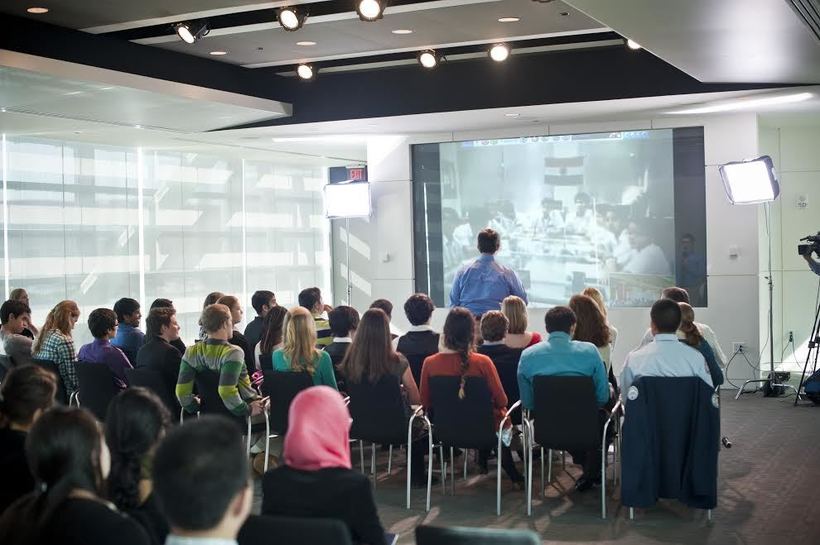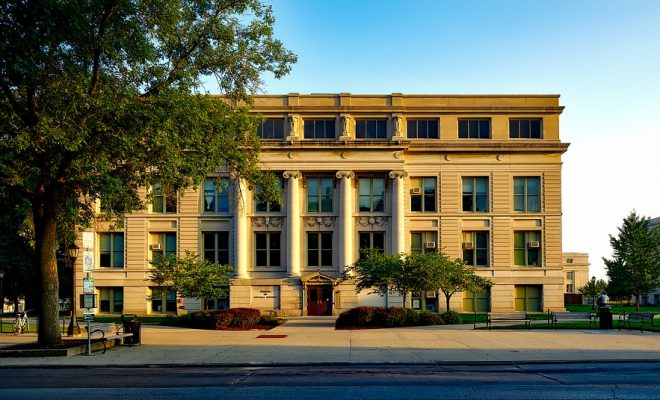Public universities are under threat – not just by outside reformers

Brendan Cantwell, Michigan State University
A new documentary, “Starving the Beast,” recently examined the state of public higher education. Directed by Austin-based award-winning documentarian Steve Mims, the film argues that a network of right-wing think tanks and educational reformers are undermining public universities. It suggests that America’s great public universities may die from a thousand cuts unless policymakers change course.
My experience as a higher education policy researcher leads me to share many of Mims’ concerns. There are many serious challenges facing public universities.
However, my research also shows more than a right wing conspiracy is to blame for the condition of public higher education today.
Let’s first look at what the film tells us
This film’s story has many villains and few heroes. It describes how conservative politicians, think tank wonks, education reformers and wealthy political donors work together to transform public universities. According to Mims, they have two goals. The first is to run public universities like businesses. The second is to stop universities from teaching and research that contradict conservative values.

Kimberly Vardeman, CC BY
The film shows how many recent reforms are ideologically motivated. For example, one idea that motivates reform today is economist Arthur Laffer’s “trickle-down economics.” Laffer theorizes that all government spending slows economic growth and innovation.
Laffer’s ideas lead reformers to believe reducing state support for higher education will boost the economy and prompt universities to become more efficient.
The other concept that has gained much traction is Harvard Business School professor Clayton Christensen’s idea of “disruptive innovation,” which holds that established organizations innovate only when upstart competitors upend their business model. For the reformers this means promoting for-profit colleges to compete with public universities.
Anti-tax lobby groups like Americans for Tax Reform (ATR) are also implicated in the film. Since 1986 many elected Republicans have pledged to ATR never to raise taxes, making it hard to adequately fund higher education.
The results of all of this, according to Mims, are devastating budget cuts, program closures, and the erosion of academic freedom.
But here’s the problem: In focusing on contemporary developments, the film implies that public universities were, until recently, well-supported, idyllic bastions of intellectual freedom.
In creating this impression, Mims indulges in what I describe as higher education critics’ tendency “to reject the present by pointing to a more perfect past.” Idealizing the past may tell a good story but it ignores the long history of political struggle that has led to the present crisis.
Why there’s another side to the story
Let’s consider the recent history of some of the challenges facing public universities.
Declining funding for higher education has been a serious problem in recent years. After the Great Recession in 2008 public universities in most states experienced dramatic funding cuts. But these cuts followed decades of decline.
A 2015 report of the American Academies of Arts and Sciences (AAAS) shows that in 1990 14.6 percent of state budgets went to higher education, but by 2014, this share had dropped to 9.4 percent.
I share the assessment that the states invest too little in higher education. Decline in state funding has led to increased tuition. But, as the AAAS report shows, other demands on state budgets, including increased health care spending, partly explain declines in higher education funding.
Research does show that Republican governors and Republican-controlled legislatures fund higher education less generously than Democratic governments. Nevertheless, some of the policies that weaken public universities have enjoyed bipartisan support. For example, policies allowing more public funding to go to for-profit colleges have had backing from both Democrats and Republicans in Congress.
Let’s look within
Another claim made in the film is that reforms are designed to undermine academic freedom.
I disagree that threats to academic freedom come only from outside forces. This portrayal is too generous to universities, which often make decisions for nonacademic reasons.
Mims shows that intellectual activities that disagree with conservative ideology sometimes attract the ire of conservative politicians. One troubling example from the film is the closure of a poverty research center in North Carolina.
But as public policy expert from University of California, Berkeley David Kirp demonstrates in his book, “Shakespeare, Einstein, and the Bottom Line,” financial interests often trump academics at America’s universities. Although painful for those involved, many program closures are motivated by cost and efficiency concerns rather than political ideology.

Roger W, CC BY-SA
“Starving the Beast” also identifies anti-tenure policies as a major threat to academic freedom. Sure enough, recent developments, such as policies in Wisconsin and Texas, weaken tenure and academic freedom. These are threats that come from outside of higher education. And, indeed, these policies concern me.
But more than one-half of all faculty are now “contingent” – that is, they teach on a semester-to-semester basis. This “new faculty majority” has little protection for academic freedom. In my assessment, widespread use of contingent faculty by colleges and universes poses the greatest threat to the academic profession.
Who is responsible?
Mims suggests that most people don’t know what is happening to public universities. That may be true. But in my assessment, social values might also contribute to the problem.
Results of a study by University of Michigan economists Brian Jacob, Brian McCall and Kevin Stange indicate that most students make enrollment decisions based on campus amenities such as state-of-the-art gyms rather than academics. Campus officials seem to be responding to what students want: Campus amenities are among the fastest-growing categories of expenditures at public universities.
It’s also the case that many students go to college for job training rather than the intrinsic value of learning. A study by the Higher Education Research Institute at UCLA shows that 70 percent of college freshman believe earning a college degree is “very important” in order “to be able to make more money.”

Penn State, CC BY-NC-ND
What is more, policies and politics destructive to public universities appear to be popular. Tax increases would be necessary to maintain high-quality education at low costs. Yet a majority of Americans believe their taxes are too high.
And several of the politicians featured in “Starving the Beast” as being harmful to universities, including Scott Walker of Wisconsin and Bobby Jindal of Louisiana, were elected to two terms by the people of their states.
Asking some tough questions
What does this all mean?
If, like me, you are anxious about the condition of public universities, “Starving the Beast” will only heighten your concerns. The film is a compelling account of how special interests collude to weaken public universities.
However, it tells only part of the story.
In addition to holding educational reformers and ideologues to account, it is my view as an educational researcher that we should also ask tough questions of ourselves, our neighbors and to university officials:
Are we willing to pay higher taxes for better higher education? How do we make educational choices for ourselves and for our families? Should university leaders rely on contingent professors while investing in football stadiums and gyms?
By asking these questions, I am not providing excuses for policies that Mims correctly identifies as harmful to public universities. I agree that state policies have been harmful to public universities. But what I am suggesting is that those concerned with the condition of public higher education consider the problem in a broader context with research-based evidence.
Excellent, accessible and affordable public universities are not possible without a broad public support.
![]()
Brendan Cantwell, Assistant Professor of Higher, Adult, and Lifelong Education, Michigan State University
This article was originally published on The Conversation. Read the original article.






